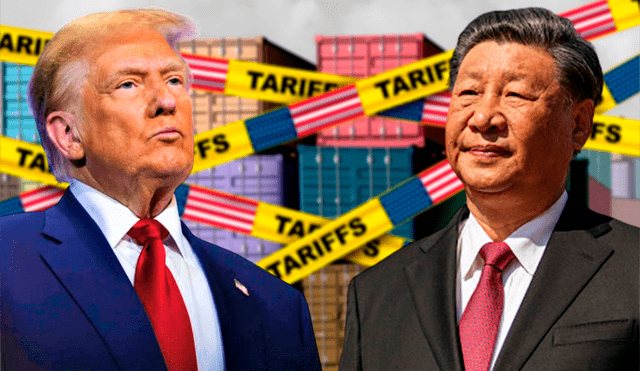China takes action: Beijing announces 84% impositions on U.S. goods in retaliation against Trump's policies
China's new tariff hike to 84% on U.S. goods follows President Trump’s imposition of over 100% tariffs on Chinese imports. The move escalates the trade conflict, impacting global markets and economic growth projections.

The ongoing trade tensions between the U.S. and China have escalated once again, with both nations implementing aggressive tariff policies. The latest move by China, which involves raising tariffs on U.S. imports to 84%, has further fueled the conflict, creating economic uncertainty worldwide. This retaliatory action comes as a response to the U.S.'s recent tariff hike on Chinese goods, intensifying the trade war between the two largest economies.
With both countries digging in their heels, the ramifications are being felt globally, as investors express growing concerns about the potential for slower economic growth, higher inflation, and reduced corporate profits.

ALSO SEE: Jet Set nightclub roof collapse in Dominican Republic leaves 113 dead and over 150 injured
China replies against Trump's tariffs
China has once again retaliated against U.S. President Donald Trump's tariff policies, increasing its tariffs on U.S. imports to over 80%.
Starting April 10, tariffs on U.S. goods entering China will jump from 34% to 84%, as confirmed in an announcement by the Office of the Tariff Commission of the State Council. This move comes in response to the U.S.'s latest tariff hike, which saw tariffs on Chinese goods increase to over 100% as of midnight.
The escalating back-and-forth tariffs pose a serious threat to trade between the two largest economies in the world. In 2024, the U.S. exported $143.5 billion worth of goods to China, while importing $438.9 billion in return, according to the Office of the U.S. Trade Representative.
Last week, the Trump administration unveiled a sweeping new tariff policy, cautioning other nations not to retaliate. While some countries, such as Japan, have shown a willingness to negotiate, China has taken a hard-line approach, promptly announcing countermeasures.
In response to China’s initial tariff actions following the April 2 rollout, President Trump ordered a further 50% increase in tariffs, bringing the total import taxes on Chinese goods to 104%.
“It’s unfortunate that China refuses to engage in negotiations, as they are the biggest offenders in international trade,” U.S. Treasury Secretary Scott Bessent told Fox Business on Wednesday following China’s latest announcement. “Their economy is the most imbalanced in modern history, and this escalation will hurt them.”
Trump's administration announced tariff to certain countries around the world
Prior to the full rollout of the April trade policy, the U.S. had already implemented new tariffs on China. Additionally, China, along with Canada and Mexico, was targeted with new tariffs at the beginning of Trump’s second term, as part of a broader initiative to curb the flow of fentanyl into the U.S.
The ongoing trade war has caused significant concern among global investors, raising fears of slower economic growth, higher inflation, and declining corporate profits. This uncertainty triggered a sharp sell-off in the market in April.
The S&P 500 finished Tuesday nearly 20% below its peak, officially entering bear market territory. Meanwhile, South Korea’s Kospi Index entered a bear market on Wednesday, and stocks in Shanghai and Hong Kong have also fallen significantly since the April 2 tariff announcement.











